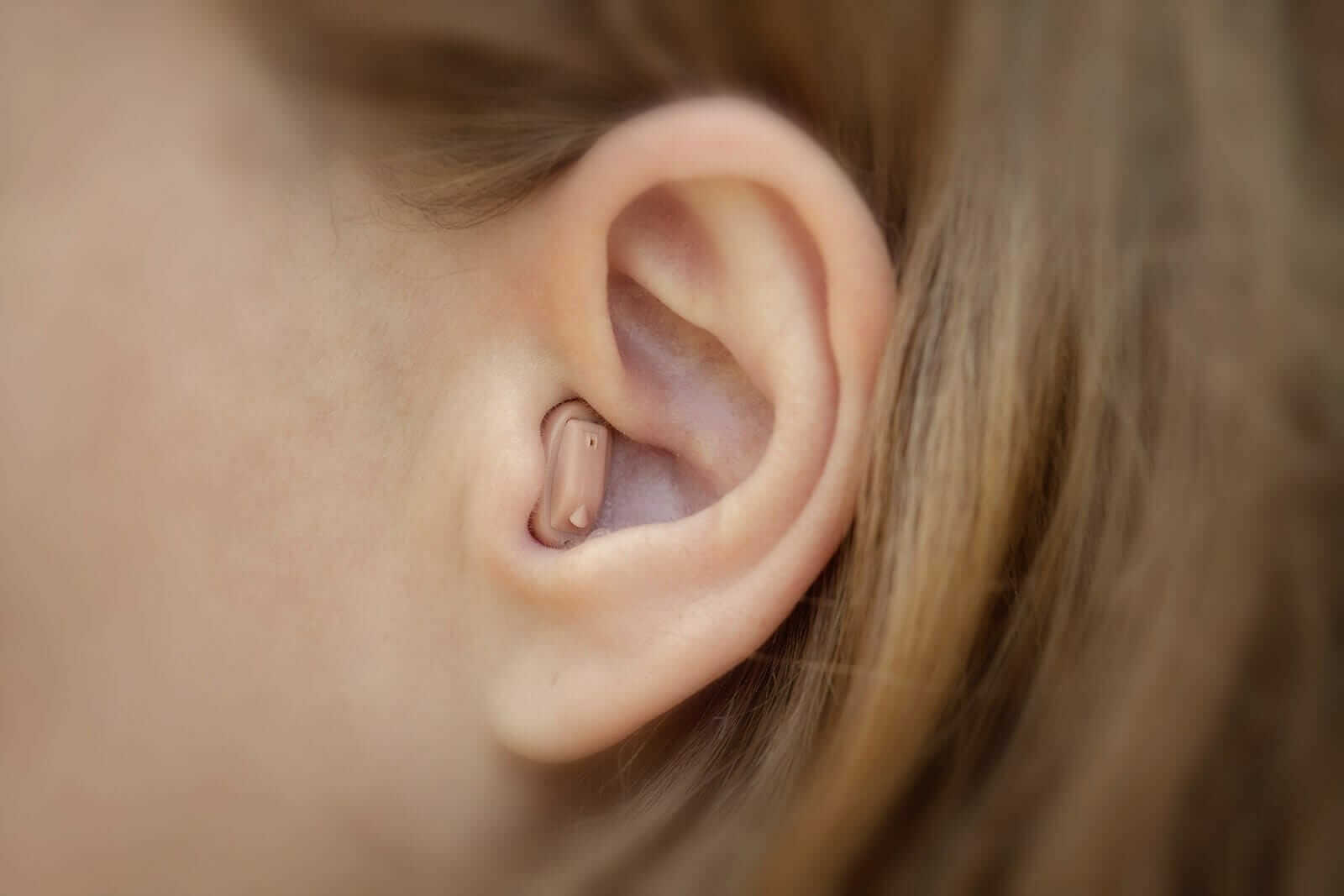Did you know that about 20 percent of Americans experience hearing loss? That’s over 48 million people! Hearing loss affects people of all ages. Depending on the cause, it may be minor or severe, temporary, or permanent. Unfortunately, many people who suffer from hearing loss don’t seek treatment because they’ve heard some harmful hearing aid myths. So if you’ve been hemming and hawing, wondering if you should contact an audiologist or not, take a look at our list of hearing aid myths below. The truth may surprise you.
Myth: Delaying treatment for hearing loss isn’t a big deal.
This is one of the most detrimental hearing aid myths. Many people believe there’s only one negative consequence of delaying treatment for hearing loss: a reduced ability to hear during that period of time. In fact, the resulting sound deprivation could lead to irreversible hearing loss. So if you delay treatment long enough, hearing aids may not even be able to treat your hearing loss. Early intervention is extremely important for your current quality of life and your future ability to hear.
Myth: My hearing loss is hopeless.
Perhaps many years ago, you visited a doctor and were told that your hearing loss couldn’t be treated with hearing aids. That may have been true at the time, but don’t assume it’s still the case now. Modern auditory technology is amazing. Don’t reject hearing aids until you’ve talked to an audiologist.
Myth: Your “good ear” will compensate for single-sided deafness.
If you have a “dead” ear, you might have heard that your other ear, “your good ear,” will compensate for the loss in the other. In reality, because you only hear well with one ear, you may have difficulty with certain sounds, struggle to know where a sound is coming from or fail to understand speech when there is background noise. There are great treatment options for dead ears.
Myth: Hearing aids are bulky and uncomfortable.
Not long ago, hearing aids often were large, clumsy, and painful. These days, the devices are typically stylish, lightweight, and discreet. Plus, they’re extremely comfortable and effective. If you explore the various styles available, you’re sure to find a hearing aid that works for you.
Myth: Hearing aids make people look and act old.
It’s important to remember that people of all ages – from kids and teenagers to adults and seniors – suffer from hearing loss. Many young people wear hearing aids, so wearing a device yourself does not say anything about your age. In fact at Sound Relief, our average patient’s age is 56.
Also, many hearing aids these days are so tiny and inconspicuous, you don’t need to worry about how their appearance will make you look. For example, completely-in-the-canal (CIC) hearing aids are nearly invisible, and Lyric hearing aids are completely invisible.
Lastly, the symptoms of untreated hearing loss can also make you feel and act old. Having to constantly ask people to repeat themselves can be exhausting for you and everyone around you. Eventually, either you will participate less in conversations, or people may start to avoid you – or both.
Don’t let the stigma of hearing loss hold you back from pursuing a life-changing treatment.
Myth: Wearing two hearing aids is unnecessary.
Humans use both ears to hear properly, so people with hearing loss usually need to wear two hearing aids. The devices allow for binaural (two-eared) hearing, which helps with locating a sound’s origin and hearing in noisy settings. So if your audiologist recommends that you wear two hearing aids, listen up!
Myth: Hearing aids make all sounds too loud.
It’s true that some analog hearing aids amplify all noises – soft and loud, low and high frequency – which can make it difficult to keep the volume at a comfortable level. If you increase the volume to hear soft sounds, for example, conversations may become blaring. Luckily, most modern hearing aids dodge this problem through digital signal processing. Your audiologist can tailor your hearing devices so that they meet your needs perfectly.
Myth: My hearing loss isn’t that bad, so I don’t need a hearing aid.
Even mild hearing loss can significantly impact a person’s life. For example, do you often have to ask people to repeat themselves? Do your friends and family say you turn the volume up too loud on the TV? No matter what the degree of your hearing loss, if you’ve noticed a decline in your ability to hear, contact an audiologist for help. We can help you can determine if hearing aids are worthwhile in your situation.
Myth: Hearing aids allow people to hear perfectly.
Some people assume that like a new eyeglasses prescription can restore your vision to 20/20, hearing aids will allow you to hear perfectly again. Unfortunately, this isn’t true. Hearing aids will not “cure” or completely restore your ability to hear. The hearing aid’s technology, the listening situation, and your unique ears will all affect your ability to hear with hearing aids. That said, hearing aids can drastically improve your quality of life and maximize your ability to hear.
Myth: Hearing aids are too expensive.
Hearing aids are available at a variety of price points, but as with many other purchases, you get what you pay for. Don’t avoid contacting an audiologist because you’re afraid of the cost. We can help you find an excellent hearing aid in your budget.
Myth: You can save time and money by buying hearing aids online or by mail order.
You simply won’t receive the quality care you deserve if you buy your hearing aids online or through the mail. In addition to helping you select and buy your hearing device, an audiologist will properly program the hearing aid. Plus, your audiologist will evaluate your hearing, evaluate your hearing aid’s effectiveness and fit, tell you how to care for the hearing aid, offer follow-up care, repair your hearing aid if needed, and much more.
Myth: My hearing loss is normal for my age.
While it’s true that hearing loss often increases with age (age-related hearing loss is known as presbycusis), that doesn’t mean you must accept hearing loss and the toll it takes on your life. If your hearing loss is affecting your quality of life, talk to an audiologist. Your age shouldn’t factor into the decision.
_____
Did any of these hearing aid myths throw you for a loop? If you’re experiencing hearing loss, don’t wait to pursue treatment. Contact the Sound Relief Hearing Center in Colorado or Arizona. We are independently owned, so we always have the patient’s best interests at heart, and our state-of-the-art technology ensures that our patients receive the best treatment available. With our unparalleled excellence in the hearing industry, our dedication to patient satisfaction, and our commitment to helping people control and conquer their hearing issues, you can count on Sound Relief Hearing Center for support and assistance. Plus, we would be happy to answer any questions you have about these hearing aid myths. To learn more about us, please browse our website, visit our Youtube channel, or give us a call at 720-344-7600. You can also schedule an appointment online to meet with one of our audiologists. We look forward to hearing from you!
At Sound Relief Tinnitus & Hearing Center, we provide hope and help to those living with tinnitus and other hearing health issues. Our patients are at the center of everything we do, and we strive to guide them to overcome their challenges by delivering innovative and compassionate healthcare.
Dr. Julie Prutsman, owner of this family-owned practice, has expanded to 9 locations across Colorado and Arizona. In 2012, she founded Sound Relief in her hometown of Highlands Ranch, Colorado and continues to foster their mission through mentorship of the brightest minds in the field of Audiology.

